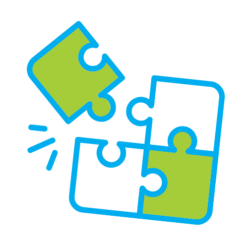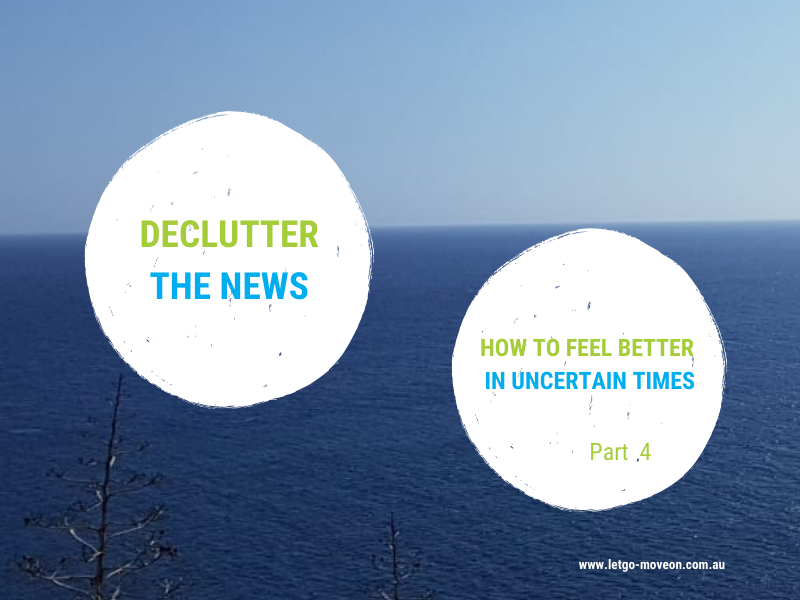Uncertainty is a scary thing for our mind
What’s happening right now, in the middle of a pandemic, is totally new and unknown – to all of us. Most of us have never experienced a health crisis like this in our life.
We don’t know what’s going to happen tomorrow, what’s going to happen next week, or next month. Even the experts can’t predict what’s going to happen.
Our mind is always looking out for danger, and it doesn’t like uncertainty. Thus it’s totally normal and natural for our mind to freak out right now.
There is no wrong reaction to uncertainty
We all get to choose how we want to think and feel.
Nobody has the right or the power to tell us how to think or feel about what’s happening all around the world and in our daily lives right now.
Thus, whatever it is that we are feeling right now – worried and panicking or peaceful and calm -, whatever the feeling is, it’s totally o.k.
It would not be useful to tell ourselves that we should be feeling something different than we are feeling.
We can allow any feeling and be o.k. with it.
We are free to choose our reaction to uncertainty
However, even if we are willing to accept our feelings and understand where they are coming from, we should also be aware that we are free to change our feelings at any time if we want to.
We just have to take conscious control of our mind again.
By deliberately choosing the thoughts we want to think we can change our feelings – which are always created by our thinking.
We are the ones who determine what’s happening in our mind and how we feel about it.
Our dependency on the news
One way to direct our thoughts is to carefully choose the amount and type of information we allow to enter our mind, and to decide what we want to think about it.
Right now, the news industry is thriving. The coronavirus is the hot story and the media people want us, of course, to continue watching, reading, listening – all day long.
And many of us feel we have to permanently feed our mind with new information.
We so desperately wish to decrease our feelings of uncertainty about what’s going to happen that we become ‘addicted’ to the news. And to social media updates.
However, the problem with addictions is that they usually don’t benefit our health.
In this case, a steady stream of startling media information can have negative consequences for our mental and emotional health.
Instead of releasing us from our feelings of uncertainty and worry, the bombardment with information can cause us feeling even more overwhelmed, confused, and powerless.
How to balance out the incoming information
The solution is not, of course, to put our head in the sand.
We need to make sure that we get all the information we need to constantly adjust our daily life to new developments, regulations and restrictions.
However, it’s within our power to determine the amount, the type, and the source of the information we allow to enter our mind.
-
- Limiting the amount of incoming information
We don’t need to be monitoring the news all day long. We can deliberately limit our exposure to the constant feed of news from our phone, TV, or the newspapers.
We can decide, for example, to watch the local TV news at 8 a.m. and at 6 p.m. That’s it. Or to check the news updates on our phone each morning for 30 minutes. No longer.
-
- Choosing the source of incoming information
We don’t need to be on all news media sites. Each morning, we can ask ourselves, ‘What do I need to be informed about today?’
And then we avoid all the third-hand information and, instead, search only first-hand information resources, for example the government’s health department website, or our employer’s site, or our kids’ school’s site.
-
- Choosing the type of incoming information
We can decide to balance the different types of information inflow.
Thus, after watching the news for one hour, we can consciously decide to feed our brain with other inputs, at least in equal measure. Reading a book for one hour, for example, or listening to music for one hour, or a podcast.
What do you think about your current media consumption?
Is it helpful to you? Does it serve your well-being?
Or is it too much? Is it unbalanced? Does it distract you from any positive news? From all the good things that are happening, all the experiences that have nothing to do with the virus?

